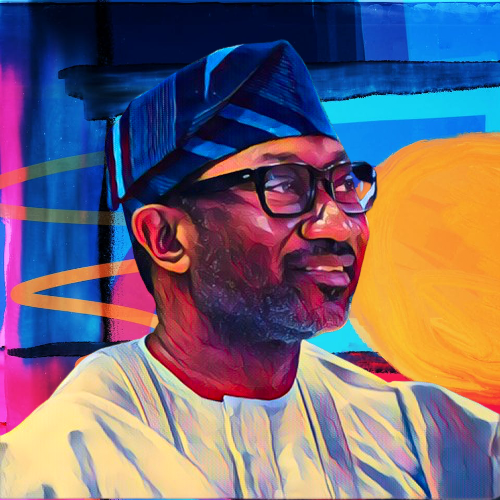Femi Otedola, the Nigerian business tycoon, has made a significant comeback to the Forbes Africa list of the richest people, securing the 20th spot with a fortune of $1 billion after a six-year hiatus. This marks a notable resurgence for Otedola, who last appeared on the Forbes list in 2017. Meanwhile, Aliko Dangote, the renowned Nigerian businessman, continues to maintain his position as Africa’s richest man.
According to billionaires.africa this the third time Otedola is appearing on the Forbes billionaires list. He made his debut on the list in 2008 when he became the second Nigerian after Dangote, Africa’s richest man, to be included on the global Forbes list, The World’s Billionaires. At the time, Otedola was the largest shareholder of fuels distributor, African Petroleum, and owned Zenon Petroleum, which dominated Nigeria’s diesel sector. Otedola fell out of the list the following year, but made a reappearance in 2016 on the back of the value of his stake in Forte Oil, the successor of African Petroleum. This time around, his stake in Geregu Power, Nigeria’s first publicly-traded utilities company, as well as his offshore cash holdings, extensive international real estate portfolio, and shareholding in two of Nigeria’s largest commercial banks — Zenith and FBN Holdings — have bolstered his fortune significantly, earning him a place on the highly coveted list.
Otedola’s return to the Forbes list is attributed to his strategic business decisions, particularly his shift from oil to the energy sector. In 2013, he leveraged a subsidiary of his company Forte Oil to acquire Geregu, a public power generation plant, capitalizing on its privatization. This move proved to be a game-changer for Otedola, with Forbes valuing his 73% stake in Geregu at over $850 million, forming the backbone of his current fortune.
The overall wealth of African billionaires has seen a slight dip compared to last year, mirroring the global economic slowdown. However, it is noteworthy that African billionaires have fared relatively better than their global counterparts. Despite Otedola’s resurgence, the collective wealth of Africa’s richest individuals declined marginally, reflecting the challenges of maintaining a billion-dollar fortune in the continent’s unpredictable economic environment.
Aliko Dangote, with a fortune now estimated at $13.9 billion, up by $400 million, continues to top the list of Africa’s richest for the 13th consecutive year. His wealth growth comes despite a year marked by political uncertainty and currency devaluation in Nigeria, which impacted his conglomerate, Dangote Cement. Dangote’s sustained wealth is a testament to his business acumen and the resilience of his diverse enterprises.
Johann Rupert, the South African luxury goods magnate, holds the second spot with a net worth of $10.1 billion. Nicky Oppenheimer, another South African business magnate known for his past association with diamond mining firm DeBeers, ranks third with $9.4 billion. The list also features notable gains and losses, including Egypt’s Nasseff Sawiris, who saw his fortune increase to $8.7 billion.
The African billionaires’ landscape continues to be one of the world’s most challenging environments to build and maintain significant wealth. Factors such as strained economies, poor infrastructure, volatile exchange rates, and changing political climates contribute to the difficulties faced by the continent’s richest individuals.
The 2024 Forbes Africa list shows a diverse geographic representation. South Africa leads with six billionaires, followed by Egypt with five and Nigeria with four. Algeria, Tanzania, and Zimbabwe each have one billionaire, while Morocco boasts two. This spread underscores the varied economic landscapes and opportunities across the African continent.
The return of Femi Otedola to the Forbes Africa list and the continued dominance of Aliko Dangote highlight the dynamic nature of wealth and entrepreneurship in Africa. Despite the global economic challenges, these individuals demonstrate the potential for substantial wealth creation and business success in Africa. Their journeys offer insights into the complexities of the African market and the resilience required to thrive in this environment.
The 2024 Forbes Africa list of the richest individuals reflects the shifting fortunes in the African business world. Femi Otedola’s strategic shift to the energy sector and his re-entry into the list, coupled with Aliko Dangote’s continued position as Africa’s wealthiest individual, showcase the adaptability and endurance necessary in the African economic landscape. While the overall wealth of African billionaires has seen a slight decrease, their resilience amidst global economic challenges remains a testament to their business acumen and the diverse opportunities present across the continent.



